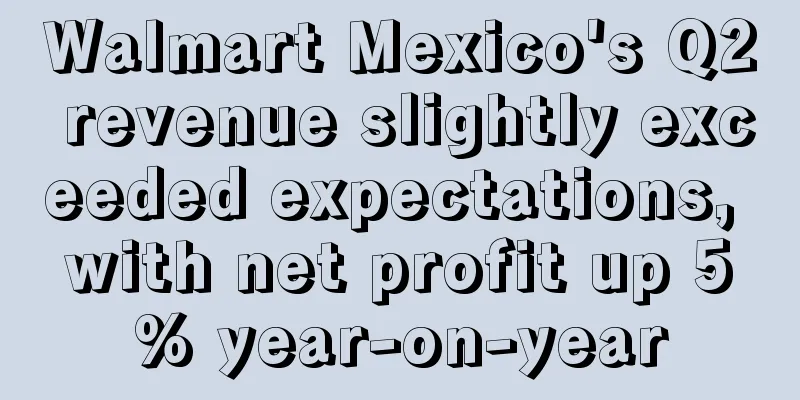|
If cross-border overseas expansion is a game of capital competition, then logistics is bound to be a major obstacle for sellers to win in this profit competition. Looking back over the past two years, the container shipping market has been facing labor shortages and tight transportation capacity despite the increasingly enthusiastic demand, and the worsening supply chain crisis has further aggravated this conflict. According to a survey by Jungle Scout, 93% of Amazon sellers suffered revenue losses due to global supply chain issues in 2021. About 3% of sellers said that inventory order delays were as long as one year or more, and a large number of companies had product delays of up to 4 months, and these delayed inventories mainly came from China. On the one hand, there are shortages and out-of-stock issues caused by delivery delays, and on the other hand, soaring freight costs have repeatedly eroded profits. Regardless of which Amazon sellers are on which site, logistics seems to have become a common "demon". Amazon Europe released an announcement. Will this change hit sellers hard? Looking back at last year, rising freight costs became an important driving force behind the shrinking profits of sellers. As 2021 draws to a close, Amazon US has announced that it will adjust FBA delivery fees, storage fees and other fees from January 22, hitting sellers' already not wealthy families hard. Not long after the start of 2022, the "war" quickly spread to other sites. Recently, the European site also issued an announcement on changes to FBA delivery fees. Starting from March 31, 2022, Amazon Europe FBA delivery fees will be adjusted as follows: 1. The parcel size and weight classes for delivery charges will be changed: certain size and weight classes will be introduced and removed from the delivery rate card; 2. Delivery rates will also change: Amazon will offer a 20% discount on European Fulfillment Network (EFN) fees from the EU (Germany, France, Italy and Spain) to the UK (and vice versa) for one year; 3. The size, weight levels and rates of FBA small and light packages will also change : Amazon stores in France, Italy and Spain will increase the price qualification threshold for small and light packages from 10 euros to 11 euros. According to Amazon's announcement, for small, standard, and large-sized products, the larger value of the product weight or volume weight will be used to determine the weight segment of the product, which means that the seller's shipping costs will increase further. ▲ The picture comes from the Internet Some sellers bluntly stated that the change in the US standard size measurement rules for sizes below 0.34KG a few years ago had a significant impact. Now that the European site is also considering volumetric weight, it is another heavy blow. When selecting products, one must consider avoiding light-weight, large-size products with low profits. Although Amazon will restart its delivery network from the EU to the UK and offer a one-year 20% delivery fee discount, the EFN fees are actually very high and sellers will still bear a considerable delivery cost. ▲ The picture comes from the Internet At present, the rising logistics costs have made sellers on the European site face an increasingly heavy operating burden. In addition, there are many pain points that are plaguing sellers on the European site. Faced with various business challenges, this issue has become the biggest pain point for sellers! It is learned that according to the "2021 European E-commerce Report" released by an authoritative organization, the sales of the European e-commerce market in 2021 reached 844 billion euros, with a growth rate of 10%, and this trend is expected to continue. From the perspective of market segments, countries such as the United Kingdom and Europe have performed well and will continue to maintain healthy and steady growth in the next few years. The huge development potential of the European market has made it a major gold mine for Amazon sellers after North America. However, as the market share continues to expand, problems also follow. On the one hand, the freight costs of cross-border logistics are increasing, and high FBA delivery fees, monthly warehousing fees and other costs have squeezed the profit margins of sellers. On the other hand, the fierce competition environment has created the prevalence of internal circulation, further giving rise to a vicious cycle in which competing products are in a state of mutual dependence and ultimately unprofitable. In addition, tax compliance is a major pain point. There are many countries in Europe, but the policies, regulations, and logistics distribution of each country are different, and the requirements for tax compliance are also the most stringent. If you are not careful, it may affect the transportation of logistics and even lead to the account being blocked. It is learned that the European customs clearance policy is strict, and various certificates and regulations emerge in an endless stream. For example, the EU's CE, the UK's UKCA, the French and German EPR, the German Packaging Law, etc., have increased the seller's costs and raised the threshold for sales in Europe. At the same time, as sellers, they register their company and product information more and more frequently in various European information systems and on different occasions, so the compliance of the import VAT link is particularly important. The e-commerce model led by Amazon has risen rapidly around the world. In the early stage of wild growth, the platform did not uniformly require sellers to declare and pay taxes, and register tax number information. In order to solve the problem of both point-to-point transportation and customs clearance and tariffs in the transportation link, the "double clearance and tax package" service came into being. However, as the taxation of e-commerce platforms becomes more and more standardized, continuing to adopt the double-clearance tax package is very likely to cause problems. Lianyu Logistics has launched the UK dedicated line "Dinghai-DPD" , which can not only ensure stability, safety and accuracy in the customs clearance process, but also help achieve compliance. ▲ The picture comes from Lianyu Logistics In order to ensure safe customs clearance, sellers must continue to understand European laws and regulations and maintain close contact with tax intermediaries. It is particularly important to choose reliable logistics. When it comes to cross-border logistics, in addition to delivery time, transportation costs, etc., inventory issues are also a thorn in the side of sellers. Storage capacity is a double-edged sword. How to prevent the dilemma of unsalable goods? Throughout 2021, the storage capacity restriction policy has repeatedly become a stumbling block for sellers to make great efforts in the peak season promotion, resulting in the disruption of delivery plans and the emergence of shortages and out-of-stock situations. In order to break through, sellers have also shown their magical powers, but the results are not significant, and they may even be blocked. However, at the end of last year, Amazon announced that it would lower the inventory IPI threshold to 400 starting in 2022, which seemed to be sending a signal of relaxing inventory capacity restrictions. During the Spring Festival of the Year of the Tiger, many sellers were pleasantly surprised to find that their inventory capacity had increased significantly, increasing by tens of thousands at once. ▲ The picture comes from the seller communication group The release of a large amount of inventory space has increased the inventory limit by one to two times, which can not only help sellers flexibly create delivery plans and prevent the normal sales of goods from being affected, but also promote sellers to better innovate. However, storage capacity is also a double-edged sword. If a large amount of inventory is stored in the FBA warehouse, inventory turnover will inevitably decrease, and may even cause problems such as backlogs and slow sales. Under pressure from the IPI index, sellers can only clear inventory at low prices. The fatal risk of the Amazon model in logistics: once the goods are in the FBA warehouse, once there is a problem with the account or listing, the seller is completely passive; if you want to avoid out-of-stock and reduce inventory risks, express delivery becomes an inevitable choice. Therefore, a safer approach is to keep inventory domestically and utilize express shipping for turnover, which not only improves inventory turnover, but also helps reduce storage fees and improve IPI scores. For European sellers, choosing fast ships and improving flexibility is the best choice. Based on these pain points of sellers, Lianyu Logistics has made great efforts to build a dedicated line to the UK. ▲ The picture comes from Lianyu Logistics Lianyu Logistics’ UK FBA dedicated line “Dinghai-DPD” selects the most stable e-commerce express ships to ensure inventory, provides professional tax consulting, and compliant customs clearance, helping sellers and customers solve pain points. Six major advantages protect European sellers’ cross-border expansion and eliminate logistics pain points: Stable timeliness: 35 natural days for signing at the fastest Complete outlets: 12 domestic outlets for receiving goods Wide delivery: DPD can deliver to the whole UK network Including claims: Guaranteed receipt within 40 natural days Guaranteed shelf : including insurance to ensure the smooth shelf loading of goods Fast customs clearance: Professional customs clearance is faster and safer In order to better give back to sellers and provide quality services, Lianyu Logistics launches the following preferential information: Offer: Free shipping. Note: New users can enjoy 15% off for a limited time + the first five users can enjoy 100KG free shipping! Scan the QR code below to add Lianyu Logistics’ official customer service WeChat account immediately to help sellers achieve worry-free cross-border sales and achieve big sales! According to the statistics portal Statista, European e-commerce sales will double to $1.16 trillion in the next three years. The sustained and steady growth makes the European market popular with sellers, but policies and regulations, as well as cross-border delivery, are also major challenges that sellers need to face. Therefore, it is particularly important to choose reliable logistics and formulate reasonable delivery policies.
|










